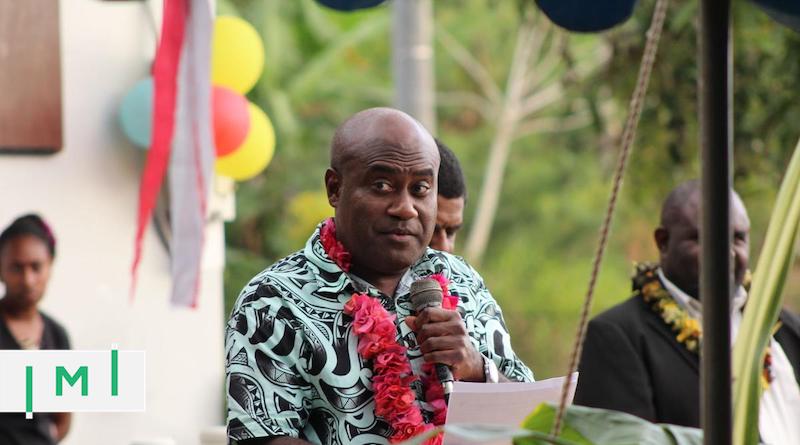Vanuatu Appoints CS Global, FACT as International Partners, Plans Retroactive DD on All Applicants Since 2015
In a press release issued this morning local time, Vanuatu’s Citizenship Commission announces a set of major changes to its citizenship by investment program, including the appointment of a government advisory concessionaire and an official due diligence partner that will completely re-organize the program’s vetting procedures and also undertake a comprehensive retroactive review of all CBI applicants granted citizenship in the last six years.
The announcement comes just two days after the European Commission proposed a partial suspension of its visa-waiver agreement with Vanuatu.
Retroactive due diligence on all CBI applicants from the last six years
“[…] the government has formally finalized the engagement with its first international due diligence service provider, UK agency FACT. The company, the first of several leading global due diligence agencies to be appointed, will provide robust due diligence service.”
IMI understands that the process of engaging the international partners had been underway for close to a year before being finalized on January 12th, mere hours prior to the European Commission’s fateful announcement.
The statement added that the appointment of FACT and the enhanced due diligence standards the firm brings would ensure that “only reputable investors can obtain citizenship. […] No resources will be spared in the due diligence exercise to ensure the protection and security of both Vanuatu and the international community.”
CEO of FACT, Kieron Sharp, commented: “I am delighted to be working with the Republic of Vanuatu and assist in creating processes that will become a gold standard in due diligence. […] We are working with the Republic of Vanuatu to develop processes to provide efficient, reliable, and secure information. We look forward to a fruitful and successful working relationship.”

The Citizenship Commission, moreover, promised to review all past CBI cases with a view to rooting out any improperly naturalized program participants.
“The government shall retroactively run full due diligence checks on all CBI applicants granted citizenship in the last six years to ensure that only reputable applicants have been approved. If an economic citizen fails the due diligence check, their citizenship will likely be revoked,” read the statement.
CS Global Partners appointed official marketing partner
The Commission writes that it has enlisted the help of CS Global Partners to “advise the government to redesign the entire CBI offering” by appointing the firm Marketing Service Provider.
“We are proud of the progressive steps we have taken as a country to strengthen the application and verification process of our Citizenship programme and, after a lengthy selection process of onboarding strategic partners, we look forward to shaping the programme to be highly reputable and globally recognized,” continued the statement.
Enough to ward off visa-waiver suspension?
Commenting on the press release, James Harris of the Vanuatu Investment Migration Bureau said it was apparent that “Vanuatu has been actively working in the background to address any perceived deficiencies in the Vanuatu Citizenship Program, and actually has a plan. The timing of the EU announcement is therefore unfortunate, to say the least. However, on the positive side, it brings into sharp and public focus that a paradigm shift is underway in Vanuatu with the aim of elevating its Citizenship Program to be “world-class” in the field of Citizenship by Investment (CBI)”.

Whether the European Commission and Council will give any regard to Vanuatu’s now-announced reforms as it mulls the proposal to suspend visa-free travel remains to be seen.
“It is to be hoped that the EU will take into consideration that Vanuatu, a country of few resources, has had the imagination and drive to create a meaningful and sustainable income source for the country, and one which has contributed to the country graduating from UN “Least Developed” Status in the past year,” commented Harris.
“Vanuatu seeks to be as financially independent as possible, and for income from the CBI Program to be wiped out as a direct result of the directive of a powerful and wealthy economic bloc would seem to be counter-productive in supporting the country to retain its developing status and independence. I hope, therefore, that the European Council will assess and be encouraged to see the steps being taken in Vanuatu to address the EU’s concerns”.
“Vanuatu is an irrelevant place, which has zero leverage, which is why the EU can do anything it wants to it.”
– Professor Dimitry Kochenov
Professor Dimitry Kochenov, a leading scholar on EU citizenship law, reacting to the European Commission’s announcement on Wednesday, writes in an email to IMI that the Commission’s proposal breaks new ground in several respects, and not in a good way.
“What the Commission is doing is quite unprecedented, given that it refers to its own Report as a justification, which has been seriously criticized – also within the Commission, as far as I am aware,” writes Professor Kochenov.
“[The Commission] finds faults in Vanuatu’s lack of physical presence requirements – while there is no obvious connection between physical presence and the elimination of security risks – and also refers to the naturalization of citizens of the countries that would otherwise need a visa for the EU, which is exactly the point of naturalization,” adds the Professor.

“I was Russian and became Dutch; the US government, following the same logic, could fault the Dutch government for giving me citizenship, which allows me not to apply for a US visa into my Russian passport. And what if I got Dutch residence by investment and naturalized on its basis? The logic is absolutely flawed since it presumes that Vanuatu naturalization is not real in legal terms.”
Emphasizing that the EU is perfectly within its rights to impose or lift visa requirements in a unilateral manner, Kochenov says that what is new is the EU’s leveraging of that prerogative to “seek a particular type of nation-building on the other side of the globe; a novel and deeply problematic development.”
Questioned as to how the matter will now proceed through the EU system, Kochenov points out that Article 218(9) is applicable, which means the European Parliament will be informed but not involved, leaving the decision on whether to adopt the proposal with the European Council alone.
Adoption in the Council, the professor explains, will require a so-called “qualified majority“, also known as the “double majority rule”: The measure will pass if it obtains the support of 55% (15 out of 27) of member states representing at least 65% of the EU’s population.
“The issue,” says Kochenov, “is political and the timing will depend on the politicization of the issue, I presume. Vanuatu is an irrelevant place, which has zero leverage, which is why the EU can do anything it wants to it; a standard example of a post-colonial relationship with a former colony, which remained very poor.”
“Other jurisdictions need to pay attention to this situation”
David Lesperance, who has repeatedly urged Vanuatu to deal legislatively with the question of honorary citizenship, indicates inertia on the part of the government is the reason the program now finds itself in the EU’s crosshairs:
“As noted in the announcement, Vanuatu has been in discussions with the EU for quite a while about screening concerns. They have also been aware of major issues for well over a year. In both cases, Vanuatu chose not to do the legislative and administrative work necessary to address these concerns. Now the chickens have come home to roost.”
Lesperance added that it was now time for the Vanuatu government to “make hard choices very quickly. They can close the program temporarily, address the issues, and then re-open without worrying about the loss of visa-free travel. However, this cuts off a significant revenue stream for the government. The other option is to continue the program having lost this key visa-free travel. Which path they take depends on how the government thinks local voters compare the loss of EU visa-free travel vs. Loss of government revenue.”
The development also had implications for other CBI programs, Lesperance pointed out:
“Other jurisdictions need to pay attention to this situation. The ultimate question is whether any small CBI country can ever satisfy an EU which doesn’t like the existence of CBI programs, even if well security-screened.”
Christian Henrik Nesheim is the founder and editor of Investment Migration Insider, the #1 magazine – online or offline – for residency and citizenship by investment. He is an internationally recognized expert, speaker, documentary producer, and writer on the subject of investment migration, whose work is cited in the Economist, Bloomberg, Fortune, Forbes, Newsweek, and Business Insider. Norwegian by birth, Christian has spent the last 16 years in the United States, China, Spain, and Portugal.



